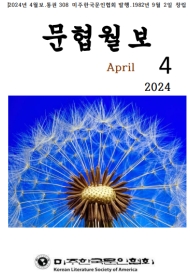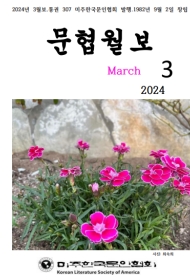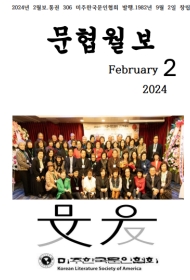"American Tongues"
===================
Wolran Kim
October 2013
One Ohio man says, “Midwestern, straight Americans never talk funny in Columbus, and if you want funny, go about 70 miles south.” One Texan historian says that most westerners speak “more open and more forthright, because Texans are not supposed to hide anything.” One female New England student says that she gave up her boyfriend who is from the south because she never wants to have any little southern babies who talk with her boyfriend’s thick accent.
One New Yorker says, “New Yorkers think there's rampant brain death west of the Hudson." And he says that Ohioans suggest that “the reason for New Yorkers’ nasal accents is that the air up in the skyscrapers is so thin.” Southerners think “Northerners are not hospitable because their voices sound grating, nasally, and unkind to Southern ears.” Northerners mock Southerners’ funny accents and scorn them.
Females in the Southern European American think northern speech is too cold and abrupt. One Texan female described “the North’s prejudicial stereotypes of southerners as them always being depicted by WWII Hollywood as being dumb and slow”. One comedian says that Georgians talk in rising intonation used for questions, and says “no wonder they lost the Civil War because the troops couldn’t understand what to do”. One New Orleans European female says that girls are beautiful and perfect if they keep their mouths shut. Southern accents usually appear to be less intelligent, inferior, and are a source for jokes. Working-class Blacks are often stigmatized from their dialects.
One editor of DARE (“Dictionary of American Regional English”) says that “local dialects won’t change unless they prevent or spoil comprehension/communication”, and all of us will never speak the same way. One educator says “the American public has not accepted Black English the same way it has accepted different varieties of white American speech”. These scenes show ethnic prejudice against their way of speech. These opinions show prejudice facing the speech of specific regions whether negatively or positively; most of them are negative prejudice. Non-standard dialects are often used to get laughs.
Dialect Prejudice has been maintained in the media, movies, TV, and caricatures. Social stereotypes are arranged by which dialects are better or worse than the others. We often think that urban is better than rural, European American better than African American, middle class better than lower class, educated better than uneducated, etc. If one belongs to a criticized group, one's speech also becomes criticized. Some say that “there are three ways of speaking: cultured, white trash (uneducated), and Black”. Distinctions of regions, class, or social groups often fall on the common man, because low classes of economic and social groups are considered the same.
People modify their language depending on their dialogue partners and the situations. In Black communities, people have a difficulty of whether Blacks should use Standard English or Black English. If they choose Standard English, they will be regarded as outsiders. Thus, one mother says that she does not want her boys sounding like white males. People have feeling about a special attachment with others when they speak the same way in their home and social lives.
In “American Tongues,” many people’s attitudes toward dialects are negative. However, there certainly are positive reasons. Local dialects have a positive influence in reality and in a variety of cultures. Dialects, which are not understandable, can be the way of understanding each other’s lifestyles in this globalized world. Absorption of various languages can be confusing with standard language; however, there are certain positive reasons in terms of regional pride, language diversity, and its conservation of using local dialect.
One southern African-American is trying to learn to pronounce standard dialects. The speech therapist says the company wants people who sound smart. Dialects are an important aspect of the American heritage representing its different social, regional, and ethnic groups. They also present a dilemma for speakers because of the different values related with their function. Dialects are a natural, inevitable part of cultural and regional differences. Therefore, dialects serve very important positive functions in certain settings in communities. Their use can elevate a group solidarity, positive attributes, friendliness, and trustworthiness.
The way of speaking represents cultural, economic, social, and ethnic identity. Speaking the same way as the people around you is an important tool for the chemistry and stability in daily life. Keeping aloof from using different language is human instinct of never wanting to be isolated.
===================
Wolran Kim
October 2013
One Ohio man says, “Midwestern, straight Americans never talk funny in Columbus, and if you want funny, go about 70 miles south.” One Texan historian says that most westerners speak “more open and more forthright, because Texans are not supposed to hide anything.” One female New England student says that she gave up her boyfriend who is from the south because she never wants to have any little southern babies who talk with her boyfriend’s thick accent.
One New Yorker says, “New Yorkers think there's rampant brain death west of the Hudson." And he says that Ohioans suggest that “the reason for New Yorkers’ nasal accents is that the air up in the skyscrapers is so thin.” Southerners think “Northerners are not hospitable because their voices sound grating, nasally, and unkind to Southern ears.” Northerners mock Southerners’ funny accents and scorn them.
Females in the Southern European American think northern speech is too cold and abrupt. One Texan female described “the North’s prejudicial stereotypes of southerners as them always being depicted by WWII Hollywood as being dumb and slow”. One comedian says that Georgians talk in rising intonation used for questions, and says “no wonder they lost the Civil War because the troops couldn’t understand what to do”. One New Orleans European female says that girls are beautiful and perfect if they keep their mouths shut. Southern accents usually appear to be less intelligent, inferior, and are a source for jokes. Working-class Blacks are often stigmatized from their dialects.
One editor of DARE (“Dictionary of American Regional English”) says that “local dialects won’t change unless they prevent or spoil comprehension/communication”, and all of us will never speak the same way. One educator says “the American public has not accepted Black English the same way it has accepted different varieties of white American speech”. These scenes show ethnic prejudice against their way of speech. These opinions show prejudice facing the speech of specific regions whether negatively or positively; most of them are negative prejudice. Non-standard dialects are often used to get laughs.
Dialect Prejudice has been maintained in the media, movies, TV, and caricatures. Social stereotypes are arranged by which dialects are better or worse than the others. We often think that urban is better than rural, European American better than African American, middle class better than lower class, educated better than uneducated, etc. If one belongs to a criticized group, one's speech also becomes criticized. Some say that “there are three ways of speaking: cultured, white trash (uneducated), and Black”. Distinctions of regions, class, or social groups often fall on the common man, because low classes of economic and social groups are considered the same.
People modify their language depending on their dialogue partners and the situations. In Black communities, people have a difficulty of whether Blacks should use Standard English or Black English. If they choose Standard English, they will be regarded as outsiders. Thus, one mother says that she does not want her boys sounding like white males. People have feeling about a special attachment with others when they speak the same way in their home and social lives.
In “American Tongues,” many people’s attitudes toward dialects are negative. However, there certainly are positive reasons. Local dialects have a positive influence in reality and in a variety of cultures. Dialects, which are not understandable, can be the way of understanding each other’s lifestyles in this globalized world. Absorption of various languages can be confusing with standard language; however, there are certain positive reasons in terms of regional pride, language diversity, and its conservation of using local dialect.
One southern African-American is trying to learn to pronounce standard dialects. The speech therapist says the company wants people who sound smart. Dialects are an important aspect of the American heritage representing its different social, regional, and ethnic groups. They also present a dilemma for speakers because of the different values related with their function. Dialects are a natural, inevitable part of cultural and regional differences. Therefore, dialects serve very important positive functions in certain settings in communities. Their use can elevate a group solidarity, positive attributes, friendliness, and trustworthiness.
The way of speaking represents cultural, economic, social, and ethnic identity. Speaking the same way as the people around you is an important tool for the chemistry and stability in daily life. Keeping aloof from using different language is human instinct of never wanting to be isolated.













